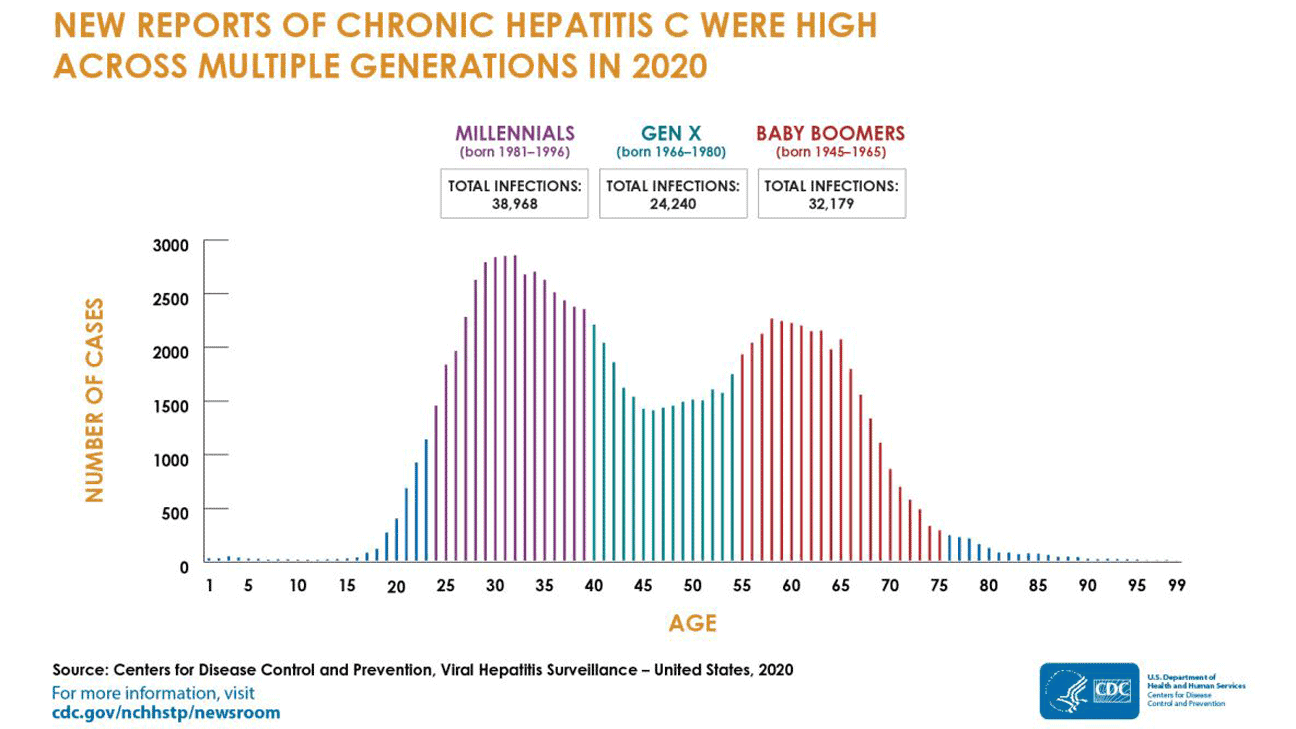Hepatitis C vaccine could stop the suffering of many
Published August 1, 2023By Chris Jennings

In 2020, nearly 15,000 death certificates listed hepatitis C (HCV) as an underlying or contributing cause of death, according to the Centers for Disease Control and Prevention (CDC).
The CDC estimates that 2.4 million people live with HCV in the U.S.
HCV is a contagious viral infection that causes liver inflammation. When your liver becomes inflamed, it cannot process nutrients, filter blood or fight infections. This reduction in the liver’s ability to do its job can lead to liver disease, cancer and even death.
Statistics show that Native Americans are almost twice as likely to contract HCV when compared to Caucasians.
Weston Lovell, a Choctaw Nation Health Services Authority pharmacist, says the Nation is working to help bring those numbers down.
“The HCV Program was started to treat all HCV-positive patients in the Choctaw Nation. Through the success of this program, we’ve been able to add HCV medications to our formulary and treat patients in our own facilities,” said Lovell.
Being able to treat HCV in CNHSA facilities is a cost-saving measure for tribal members. Some insurers restrict eligibility for HCV treatment based on the severity of liver damage or because the patient hasn’t been sober long enough.
CDC data show that only about 1 in 3 people with insurance get treatment for HCV within a year of diagnosis, and this is even lower among people with Medicaid insurance.
HCV is not something to shrug off with an “okay boomer” attitude. While baby boomers, those born between 1945 and 1965, were previously the most common generation to have HCV, millennials have taken their spot. Those born between 1981 and 1996 had a higher infection rate in 2020. A total of 38,968 millennials were infected compared to 32,179 baby boomers.
Generation X, those born between 1965 and 1980, had the lowest infection rate of 24,240.
Many reports point to an increase in opioid use that coincides with the rise in HCV rates.
“The age most affected by HCV runs hand in hand with the opioid epidemic. There’s a lot of data tying the two together. The most common age for newly diagnosed HCV cases is 18-45,” Lovell said.
Hepatitis C is usually spread when someone comes into contact with blood from an infected person through sharing needles, birth, sex with an infected person, unregulated tattoos, body piercings, blood transfusions or organ transplants.
“There are several different risk factors for HCV, from blood transfusions before 1992, unregulated tattoos or body piercings, and sharing of needles through IV drug abuse,” said Lovell.
Because of these common risk factors, many people think they can’t get HCV because they don’t use drugs or share needles.
There are several other risk factors for getting HCV that non-drug users are at risk for. Some of those risk factors are:
Healthcare exposures. Although uncommon, people can become infected when healthcare professionals do not follow the proper steps needed to prevent the spread of bloodborne infections.
Sex with an infected person. While uncommon, HCV can spread during sex, though it has been reported more often among men who have sex with men.
Unregulated tattoos or body piercings. HCV can spread when getting tattoos or body piercings in unlicensed facilities, informal settings or with non-sterile instruments.
Sharing personal items. People can get infected by sharing glucose monitors, razors, nail clippers, toothbrushes and other things that may have come into contact with infected blood, even in amounts too small to see.
The good news is that HCV is treatable; knowing you have it is the first step.
According to the CDC, approximately 4 in 10 people with HCV in the United States don’t know they have it.
Getting tested is easy.
“A simple lab test which can be performed at all CNHSA facilities will first check to see if HCV antibodies are present in your system,” said Lovell. “If so, the test will reflex to not only check for the presence of the virus but will also give a viral load. Then the provider will run a few more labs to determine which therapy is best suited for the patient based on HCV Treatment Guidelines.”
Because many people with chronic hepatitis C will not have symptoms for 20 years or more, every adult over 18 needs to get tested for HCV.
Even without symptoms, severe damage to your liver can occur and there’s the possibility of unknowingly spreading it to a loved one.
“It’s recommended that everyone over the age of 18 be tested at least once, and more often if the patient has risk factors or participates in activities that increase your risk,” Lovell said.
Today’s HCV treatments are improved over older treatments. Treatments are pills instead of injections, have fewer side effects, and can be taken with birth control or medication-assisted therapy for opioid use. According to clinical studies, treatments for HCV have a 95% or greater cure rate.
“It’s estimated that around 50% of the people positive for HCV don’t know they have it. People can live without symptoms or feeling sick, so testing is the only way to know if you have hepatitis C,” said Lovell.
Testing is available at all CNHSA facilities. If you live outside of the Choctaw Nation reservation, you can get more information on getting tested for HCV here.